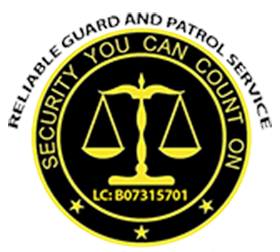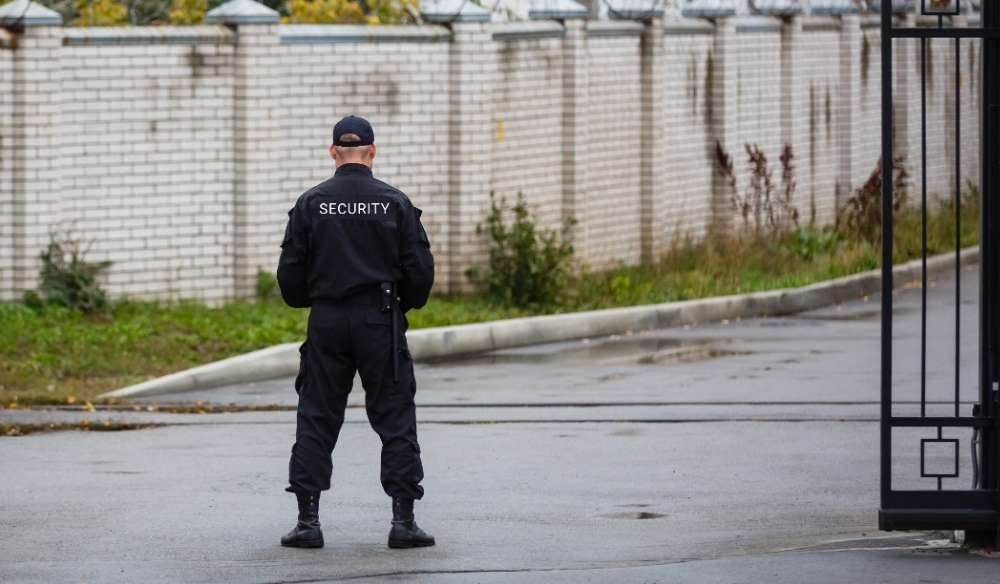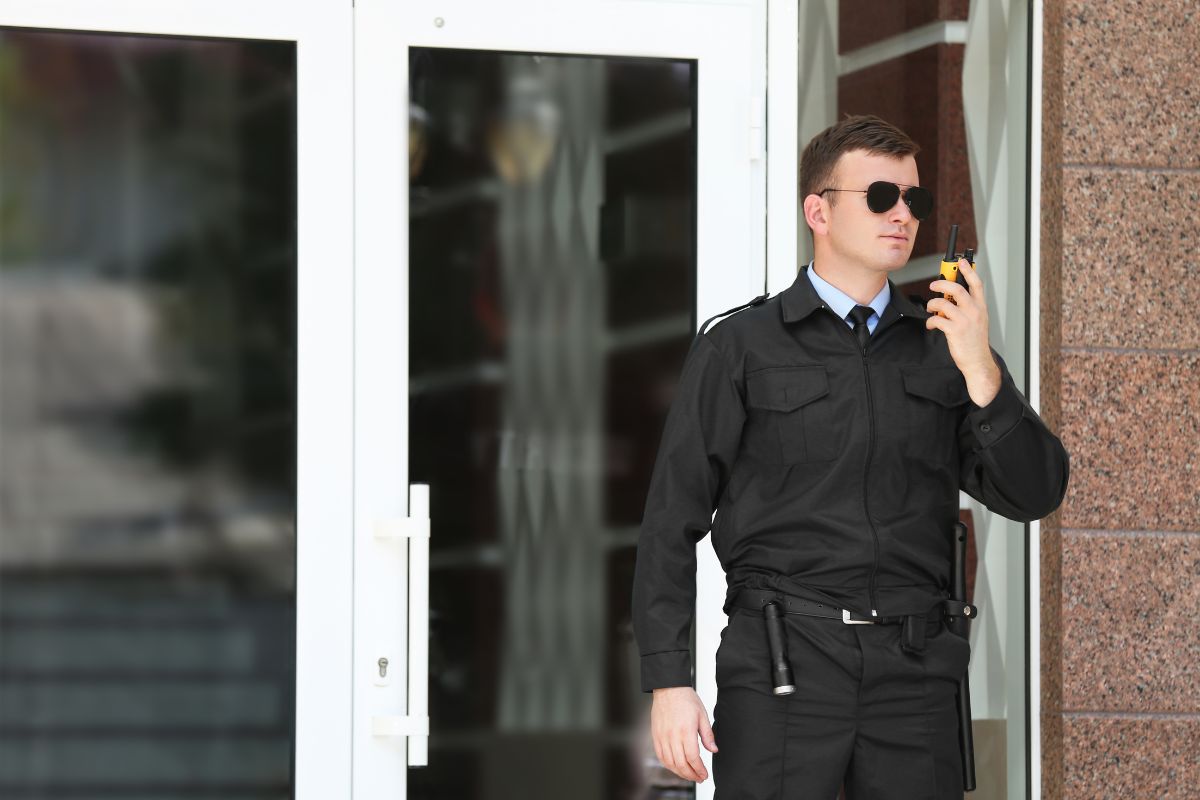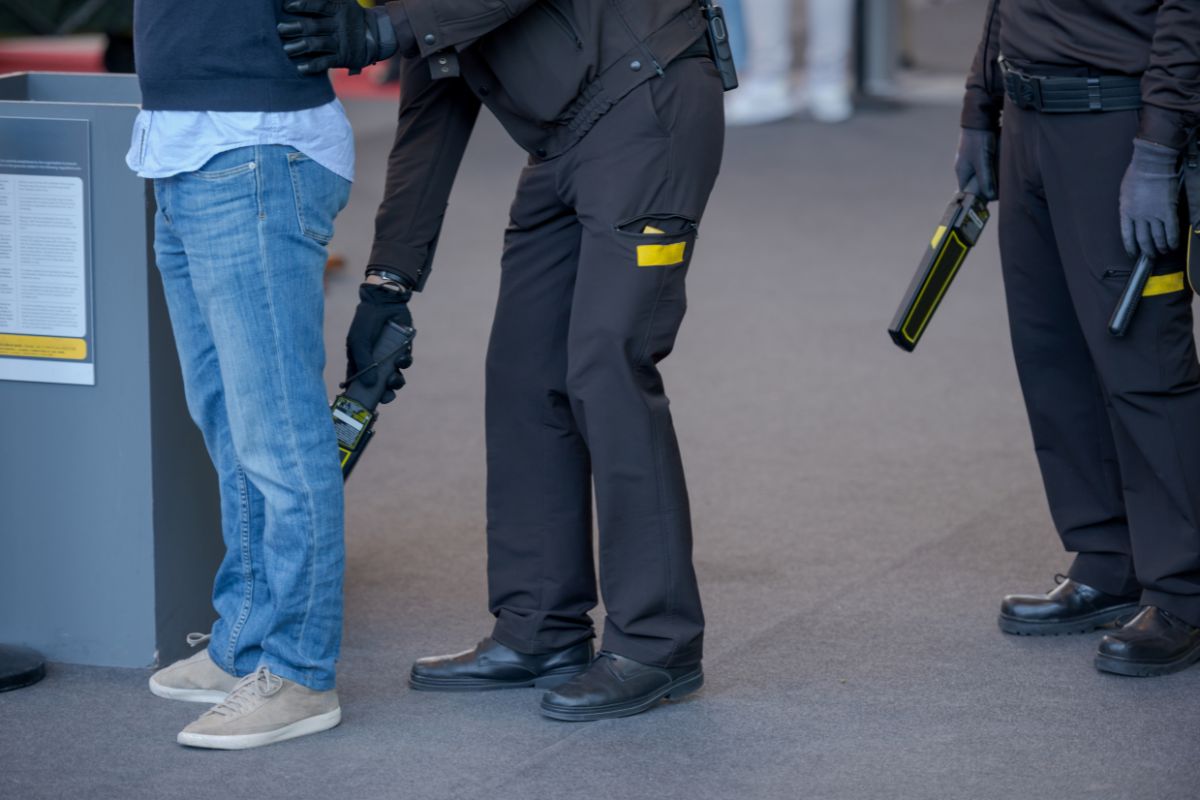
- Sat, Sep 2025
- |
- Reliable Houston Security Guard Service, Inc
Security officers have four primary legal powers: making citizen’s arrests when witnessing felonies, removing trespassers from private property, conducting consensual searches, and using reasonable force for self-defense. Unlike police officers, security guards operate under citizen’s arrest laws and derive their authority from property owners, state licensing, and specific legal frameworks including constitutional, criminal, tort, contract, and regulatory laws.
Security officer authority levels fall into three categories: private security limited to citizen powers, guards with special authorization from local governments, and dual-role officers who are also sworn law enforcement. Most private security officers cannot arrest based on suspicion alone, cannot search without consent, and must immediately contact police after detaining suspects. Their jurisdiction typically ends at property boundaries, and they must use only reasonable force proportionate to the threat faced.
Understanding these legal boundaries is essential for both security professionals and the public. Security officers bridge the gap between private property protection and public law enforcement, but their powers are specifically limited to protect individual rights while maintaining safety and order. The American Society for Industrial Security (ASIS) provides ongoing education about these critical distinctions.
Where Do Security Officers Get Their Legal Authority?
Security officers generally have the same legal powers as regular citizens. However, their authority level can vary based on special designations. The scope of their power depends on their specific authorization type. There are three main categories that determine their legal capacity. Understanding these distinctions helps clarify what armed security guard services can legally do.
Three Types of Security Officer Authority Levels
- Private security officers limited to citizen powers
- Security guards who have been granted special authorized power by their local governing institutions
- Security officers who are also law enforcement officers (police)
Security officers fall into three distinct authority categories as listed above. Each category has different legal limits and capabilities. The type of authorization directly affects what actions they can take.
No specific laws govern private security guards exclusively nationwide. The Private Security Advisory Council created a key report in 1976. This U.S. Department of Justice report outlined legal authority sources for security personnel. The report identified major areas of law that govern security operations. These legal foundations still apply to modern security guard services in Houston TX today.
The report states that governing authorities come from these major law areas:
- Constitutional Law
- Criminal Law
- Tort Law
- Contract Law
- Regulatory Laws
The 1976 report’s principles still apply to today’s security industry. Laws governing security officers have changed very little over decades. The main principle continues to hold true across all jurisdictions. Security officers must always follow the same laws as other citizens. The Security Industry Association continues to advocate for clear legal frameworks.
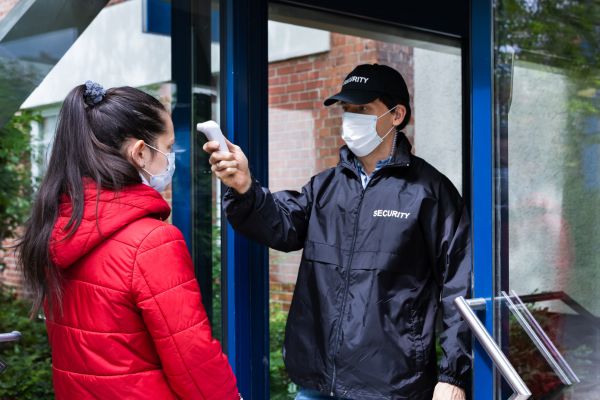
What Security Guards Can Legally Do
Armed security officers and unarmed guards work for professional security companies. Some guards are employed directly by businesses as in-house protection. Many receive licensing from state or local law enforcement agencies. However, they do not possess the same special legal authority as police. Security officers operate under different legal constraints than sworn law enforcement. Understanding these differences helps clarify their actual capabilities and limitations.
Local authorities can grant security guards specific powers on their assigned premises. Security officers have legal authority to perform certain actions within jurisdiction. Their powers are clearly defined by law and property boundaries. These abilities help them maintain order and protect assigned areas. According to NASCO, proper training ensures guards understand their jurisdiction limits.
Making Citizen’s Arrests When Crimes Occur
Police officers can arrest suspects based on probable cause alone. Security guards must witness an actual crime for arrests to be legal. They specifically must observe a felony being committed in person. The term “arrest” simply means detaining the suspect until police arrive. Private guards follow the same legal standards as regular citizens. This process is called a citizen’s arrest by law. Understanding these requirements prevents guards from making illegal detentions.
Key requirements for citizen’s arrests include:
- Must witness a felony crime in progress personally
- Cannot arrest based on suspicion or hearsay alone
- Must contact police immediately after detention begins
- Can only use reasonable restraint during detention process
- Detention must be proportionate to crime severity witnessed
- Must follow same legal standards as regular citizens
A citizen’s arrest involves the guard detaining the criminal or trespasser immediately. They must contact the police right away to make a true arrest. Guards can use restraint to detain suspects if it’s considered reasonable. The detention must be proportionate to the crime witnessed. This power helps prevent criminals from escaping before authorities arrive. Proper training ensures building security guard services understand these critical legal boundaries clearly.
Having Authority Over Private Property Areas
Non-police security guards have jurisdiction limited to their assigned property only. They can require individuals to stop performing prohibited acts immediately. Guards are authorized to ask people to leave private property. If the unwanted behavior continues, security guards may arrest people under citizen’s arrest. This authority protects businesses and property owners from various threats. The jurisdiction boundary is clearly defined by employment agreements. Property lines determine where their legal authority begins and ends.
Essential property authority powers include:
- Can order people to stop prohibited activities immediately
- Authorized to ask trespassers to leave private property
- May physically escort unwilling people off the premises
- Can make citizen’s arrests for continuing violations
- Authority limited strictly to assigned property boundaries only
- Must respect public property and neighboring private areas
Guards cannot pursue suspects beyond their designated property boundaries. Their legal power ends at property lines and public spaces. This limitation protects individual rights while maintaining property security. Property owners grant this authority through official employment contracts. Understanding these boundaries helps warehouse security guards avoid legal complications. Exceeding property jurisdiction can result in serious legal consequences for guards. The Private Security Professionals of America emphasizes proper boundary training.
Using Reasonable Force and Weapons When Necessary
Reasonable force is allowed when ejecting or detaining people on property. The force used should match the severity of the crime. Guards must consider the risk facing themselves and other individuals. Force should never exceed what the situation actually requires. Security officers receive training on proper force escalation techniques. Legal guidelines strictly regulate when and how force can be used. Understanding these rules protects both guards and the people they encounter.
Guidelines for reasonable force usage:
- Force must match the severity of the threat faced
- Cannot use excessive force beyond what’s absolutely necessary
- Must consider safety of all people in the area
- Physical restraint allowed only during legal detentions
- Weapons use restricted to immediate self-defense situations
- Documentation required for all force incidents that occur
Guards must act with caution and avoid impulsive reactions always. Using unnecessary force can result in serious physical and legal damages. If security guards overstep legal bounds through improper detention or force, trouble follows. Both the guard and their employer company face serious consequences. Proper training helps prevent these costly legal complications. Regular refresher courses ensure guards stay current on force regulations. OSHA guidelines provide additional workplace safety standards.
Searching People and Property Under Specific Conditions
Security guards typically cannot search people without express written permission. Even when suspecting stolen property possession, unauthorized searches are illegal. Personal property searches violate individual rights protected by U.S. law. Search authority usually requires police involvement or proper warrants. Only consent from the person allows most security searches. This protection ensures individual privacy rights remain intact. Constitutional protections limit search powers for all private citizens including guards.
Limited search authority includes these situations:
- Searches allowed only with clear written consent given
- Can search during citizen’s arrests when weapons suspected
- Employee contract searches permitted with signed agreements
- Cannot search based on suspicion or hunches alone
- Must respect constitutional privacy rights at all times
- Police involvement required for most search situations
However, guards may search and disarm people during citizen’s arrests. This exception applies when they reasonably suspect weapon possession. Contractual agreements can also permit searches in certain situations. Employee contracts may include provisions allowing workplace searches by security. These searches must be clearly outlined in signed agreements. All search powers remain highly restricted to protect individual rights. Violating search laws can result in serious criminal charges. Shopping center security must be especially careful with search procedures.
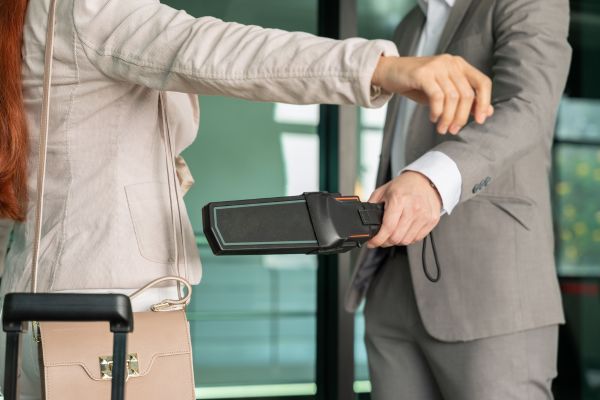
When Security Officers Should Call Police Instead of Acting Alone
Security officers face many situations where calling police is the smartest choice. Knowing when to step back and request backup protects everyone involved. Some incidents exceed the legal authority that security officers possess. Understanding these limits prevents officers from creating bigger problems. Professional security work involves recognizing when situations require sworn law enforcement. Making the right choice between action and restraint shows true security expertise. The Department of Labor’s safety guidelines stress proper escalation procedures.
Situations Requiring Police Backup and Support
Security officers should call police when facing multiple suspects at once. Large crowds or groups often exceed what one officer can handle safely. Situations involving weapons always require immediate police response and backup. Officers should never attempt to disarm armed suspects without proper training. Domestic violence incidents need specialized police intervention and legal authority. Mental health crises require trained professionals with appropriate legal powers. Drug-related crimes often involve dangerous substances and criminal networks beyond security scope.
Key situations requiring police backup include:
- Multiple suspects outnumbering security personnel on duty
- Any situation involving firearms or dangerous weapons present
- Domestic violence disputes between family members or partners
- Mental health episodes requiring specialized crisis intervention training
- Drug possession or distribution activities on the property
- Gang-related activities or known criminal organization presence
When backup arrives, event security services should provide clear information immediately. They must explain what they witnessed and any actions taken. Officers should step back and let police take control. This coordination protects everyone and ensures proper legal procedures. Documentation of the incident becomes crucial for later investigations. Security officers serve as valuable witnesses rather than primary responders. Infosecurity Magazine regularly covers best practices for incident response.
Crimes That Exceed Security Officer Authority
Felony crimes generally require police investigation rather than security action. Security officers cannot investigate complex crimes like fraud or embezzlement. Sexual assault cases need specially trained law enforcement and victim advocates. Child abuse situations require mandatory reporting to proper authorities immediately. Serious assault cases exceed the scope of citizen’s arrest powers. Murder scenes must be preserved by trained crime scene investigators. Financial crimes involve evidence collection that requires police expertise and legal authority.
Crimes beyond security officer authority include:
- Felony assault cases involving serious bodily harm to victims
- Sexual crimes requiring specialized investigation techniques and victim support
- Financial fraud or embezzlement involving complex paper trails
- Child abuse or neglect situations requiring immediate protective services
- Homicide or suspicious death scenes needing preservation protocols
- Identity theft or cybercrime cases requiring digital forensics expertise
Security officers should secure the scene and prevent evidence contamination. They must not attempt to gather evidence or interview witnesses. Officers should document basic observations without interfering with investigations. Police have legal authority to collect evidence properly for court. Security personnel lack training in proper evidence handling procedures. Attempting to investigate these crimes can actually hurt prosecutions later. Hotel security guards often encounter situations requiring immediate police involvement.
How to Properly Document and Report Incidents
Proper documentation starts the moment an incident begins unfolding. Security officers in Pearland TX should note exact times and specific details observed. Writing down witness information helps police follow up later effectively. Clear descriptions of people and events improve investigation outcomes significantly. Officers must separate facts from opinions in all written reports. Objective reporting protects officers and helps prosecute criminals successfully. Digital photos can provide valuable evidence when taken appropriately.
Essential documentation elements include:
- Exact date and time when incident began and ended
- Detailed physical descriptions of all people involved in situation
- Specific actions witnessed by officer during the entire incident
- Names and contact information for any witnesses present
- Property damage or injuries sustained during the incident occurrence
- Steps taken by security officer before police arrival
Reports should be completed immediately while details remain fresh in memory. Officers must avoid speculation or assumptions in official documentation. Facts should be presented in chronological order for clarity. Police reports will reference security officer observations during investigations. Accurate documentation can make the difference in successful prosecutions. Poor reporting can result in criminals escaping justice entirely. Security Today provides excellent resources on report writing.
Conclusion
Security officers play a vital role in protecting property and maintaining order. Their authority comes with clear legal boundaries that must be respected. Understanding these limits helps officers perform their duties without overstepping legal constraints. Proper training ensures officers know when to act and when to call police. Smart security work involves knowing the difference between situations they can handle. Professional officers recognize that restraint often demonstrates more expertise than immediate action.
The security industry continues to evolve with changing laws and expectations. Security officers in Sugar Land TX who stay informed about their legal powers serve clients better. Proper documentation and incident reporting protect both officers and their employers. Following established protocols prevents costly legal complications and maintains public trust. Security officers who understand their authority make safer communities for everyone. These professionals bridge the gap between private property protection and public law enforcement.
For businesses needing professional security services, understanding these legal boundaries helps select appropriate protection. Construction site security requires officers who know their limits and responsibilities. The Greater Houston Partnership recognizes security services as essential for business safety. To learn more about us and our commitment to legal compliance, or to discuss your security needs, please contact our experienced team today.
FAQs
Can security officers arrest people like police do?
Security officers can only make citizen’s arrests when witnessing felony crimes directly. They must contact police immediately and cannot hold suspects indefinitely.
Do security guards have the right to search my belongings?
Security guards can only search your belongings with your clear written consent. They cannot force searches without proper legal authority like police officers.
Can security officers use weapons against troublemakers?
Security officers can only use weapons for immediate self-defense situations. The force used must match the severity of the threat faced.
What happens if a security officer exceeds their legal authority?
Security officers face civil lawsuits and potential criminal charges for violations. Their employer companies can also face serious legal and financial consequences.
When should security officers call the police instead of handling situations alone?
Security officers should call police when facing multiple suspects or weapons. Complex crimes like fraud and assault also require specialized police investigation.
